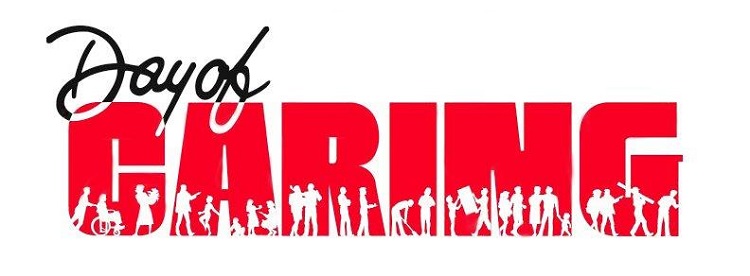Project Guidelines

Projects should be well defined, including maps to locations, list of items needed, scope of work and an assigned project coordinator who is familiar with the project. It is recommended to schedule a meeting two to one week before starting your Day of Caring Project with the assigned team leader(s) so they have an opportunity to visit their assigned site.
Note: Project recipients must be connected to the County of Sonoma or City of Santa Rosa programs as service providers, recipients, or non-profits that have a funding relationship or partnership to be eligible. Non-profits without this connection may be suggested to United Way directly as potential projects.
Project Should Include:
- Be complete in 6 hours
- Clearly defined scope of work
- Easy to reach area
- Projects reachable by Transit Bus
- Lower level skilled – manual labor
- Average person can complete work
- Journeyman for leadership & guidance when possible
- Leaders who understand scope of work
- Team building activity, requiring lots of individuals
- Social worker or other responsible person on site
- Bring all tools & equipment necessary to complete work
- Rent dumpster if necessary or haul away debris
- Social interaction/communications with owner or provide social benefit for community
- Have paint on site or other selected material
- All materials and supplies to complete work on site (paid by others and not Day of Caring volunteers)
- Low cost but lots of manual labor
- Simple, no permit type work
Project Should Avoid:
Multi-day project:
- Ambiguous or too broad of scope
- Difficult or potentially dangerous work (Roofs, gutter replacement, etc.)
- Projects requiring many vehicle miles
- Journeyman level skill (electrical re-wiring)
- Requires licensed professional or journeyman level expertise
- Sent without leader or without a pre-meeting
- Only one person needed
- No leadership, just sent out to do work
- Using owner’s tools and/or equipment
- Leave debris at site for others to remove
- No contact with owner or other community benefit
- Run around trying to locate materials
- Out of pocket expenses or use of personal credit cards
- Expensive with little manual labor
- Require permit or engineering
Types of Good Projects:
- Landscaping, trimming, clearing brush
- Moving earth, sawdust, and bark chips
- Painting exteriors (less than 6 hours total)
- Painting one room (furniture already moved)
- Trash disposal and general clean up
- General house cleaning
- Clean creek of trash and brush
- Graffiti removal
- Wipe down and clean old Library books
- Gardening and weeding
- Stocking shelves at the Food Bank
- Trail work (Shiloh Park / Spring Lake)
Projects not suitable
- Projects that can’t be completed in 6 hours
- Physical limitations – Worker's Compensation
- Painting complete residential homes
- Moving of furniture or other personal items
- Hazardous material removal (lead, asbestos, chemicals)
- Avoid poison oak, bees and other hazardous
- Sand blasting or other specialty equipment use not associated with average individual’s ability to use equipment safely
- High elevation stocking, high reaching
- Heavy lifting (Worker’s Compensation claims)
Note: Some individuals prefer to complete work in residential homes, such as cleaning kitchens, removing trash, landscaping, trimming brush, weeding. These projects require individual attention and similar effort as larger projects like cleaning the creeks, graffiti removal, and painting commercial exteriors. Often projects are completed quicker than anticipated and other back-up projects or re-assigning individuals to larger projects become necessary. We should try to line up as many projects possible, as early as possible, to work with logistics (transportation, tools, materials, team assignments, etc.)